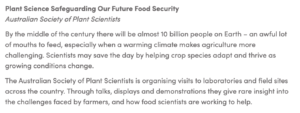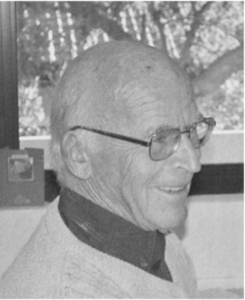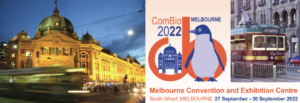Welcome to Phytogen for April 2021,
Presidents note. Phytogen April/May 2021
One of my priorities as President of ASPS is to address the falling enrolments at schools and universities in plant science and agriculture-related subjects. This trend is especially alarming considering the unprecedented challenges looming as we endeavour to feed and clothe an extra two billion people by the middle of the century.
This task is already difficult but several additional constraints make it even more daunting. This leap in production needs to occur rapidly, sustainably, in a changing climate and while most countries attempt to reduce net greenhouse gas emissions to zero. Furthermore, the burgeoning middles classes in Asia, Africa and South America will demand more animal-based foods which are resource-intensive and inherently less efficient at generating calories. Perhaps most sobering of all, the area of land that we can use to grow these crops and the farm animals cannot increase. It is essential that the remaining natural forests, woodlands and coastal ecosystems are conserved to maintain habitats, protect biodiversity and sustain planetary cycles.
Therefore, the sustainable intensification of current production systems is the only alternative. Plant scientists will clearly play a pivotal role. Hence, it is imperative that we encourage more bright and enthusiastic students to choose plant science as a career.
To this end, ASPS applied for funding from the Department of Industry, Science, Energy and Resources to highlight plant science during Science Week (14-22 August 2021). We were successful and now the planning begins.
The basic idea is that ASPS members around Australia will coordinate visits by the public to their universities and research institutes. There will be introductory presentations to explain the challenges of the future, highlight the excellence of Australian science in these areas and explain how it’s contributing to food security in a changing climate. The introduction will be followed by shorter presentations from younger scientists and research students from a range of topics. The topics will vary from institution to institution depending on the expertise of the scientists but examples will be presented of very applied projects as well as more fundamental research areas. In all cases the talks will be relevant, engaging and place the science into a real-life context that all can understand. An open discussion and question time will hopefully be followed by some simple activities or “show and tells”, or even tours through laboratories and other facilities.
In the end, we hope to emphasise that plant science involves a range of topics and skills. We are not all men, not all in lab coats, not (all) quirky and, surprisingly, not even all biologists. We want to impress how critical plant science is to the future and to inspire young adults to get on board. This is something we can all agree on.
A core group of ASPS members from about 12 universities from around the country have already put up their hands to coordinate this event. We will soon distribute their names to you all. After another meeting or two they will be looking for helpers. I encourage you all to contribute where you can to this important activity.
Dr Peter Ryan (President, Australian Society of Plant Scientists)
For your calendars: Science week is 14th – 22nd August 2021. Follow this link to read about ASPS’s event under the ACT plus many others too.
Science Meets Parliament 2021
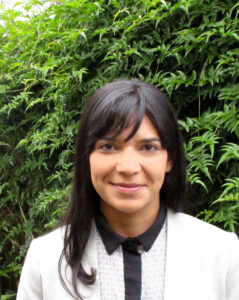
Diana Ramirez Garces, Australian National University
During March, I attended Science Meets Parliament (SmP). I am happy I did, and I am thankful for ASPS support. This year, except for the gala dinner and the speech of the Chief Scientist Dr. Cathy Foley at the National Press Conference, the event was online. Although this format imposed some challenges, it permitted to extend the program with workshops prior and after the main two-day event. All sessions were recorded and accessible on demand, which made easier to accommodate the SmP in a busy schedule. In addition, networking and meeting of delegates was facilitated by implementing an ‘open zoom bar’ setting on different days. I particularly enjoyed the pre-workshops ‘Understanding Machinery of Government’ and ‘How to Marie Kondo’ your writing’. During the session ‘How to engage with advisors’, Anna-Maria Arabia (The Australian Academy of Science CEO) and Harry Godber (a policy advisor of senior ministers) provided interesting insights into the advisory role and this motivated me to seriously consider a career change. Most sessions were organised as conversations and the speakers integrated discussions and questions from the audience. One of the highlights of SmP is the meeting of delegates with a Parliamentary. But no panic! To help you prepare the meeting, the organisers devoted an entire session to deliver key points to build your pitch, to rehearse it and get professional feedback. I participated in SmP because, over the past years, I became more appreciative of the role of policy makers and the impact of evidence-based decisions in our daily lives. The Covid-19 pandemic changed transcendentally my awareness towards science policy and made me reflect on my role as scientist. I wanted, therefore, to begin to understand policy processes and how science peak bodies and other organisations articulate with public service and Parliamentary activities. The event promised to be an excellent opportunity to picture the Australian science landscape, its leading voices, and institutions. I also hoped SmP woud be a good place to start exploring the idea of a career transition. The program met all these expectations. But you don’t need to wait to have a plethora of reasons to attend nor any prior knowledge. I had a wonderful experience and I highly encourage you to participate. If you are slightly curious about SmP, like I was a few years back when I first heard about it, then you must attend. All you need is a desire to get inspired by incredible people!

Photo: ‘New to Canberra’ session where experts explained how media, public service and advocacy groups engage to influence policy priorities. Top left panel: Misha Schubert (CEO, Science and Technology Australia); top right panel: Feyi Akindoyeni (Partner and Office Head, New Gate Communications); lower left panel: Rachel Obradovic (Director CT Group); lower right panel: David Fredericks (Secretary Department of Industry, Science, Energy and Resources).
Joseph Pegler, The University of Newcastle
In my opinion, an inherent quality of a scientist is the desire to leave things better than when they found them. Regardless of the field of research, pushing the envelope of knowledge forward not only satisfies one’s curiosity for answers but drives society towards addressing the issues faced by current and future generations.
As the issues we face globally require cross-discipline and cross-sector collaboration, I felt privileged to be selected as one of the ASPS delegates for Science meets Parliament 2021. Traditionally run as a two-day event hosted annually in Canberra, this year’s event was alternatively hosted online because of COVID-19. While the format had been modified, the concept of facilitating the interaction of STEM professionals and politicians remained unhindered. The benefit of the virtual attendance format resulted in sessions to be run from mid-March until its conclusion on the 31st of March. I found the sessions to be extremely beneficial, with the virtual sessions largely centred around expert panels providing their wealth of knowledge on all things policy, networking, media engagement, effective communication and the importance of cross-sector collaboration particularly strengthening the ties between STEM professionals, politicians and political staffers.
Focusing on the content of the two main days and while there were many more highlights, I will touch on three. When attending a session on ‘How to be a great ambassador for the STEM sector’, it comes as no surprise Corey Tutt, founder and CEO of Deadly Science, was an ideal panellist. It was great to hear from Corey who highlighted the importance and the role we all have in ensuring inclusivity in science. Given the nature of this event I was eager to hear from Nobel Laureate and ANU Vice-Chancellor Professor Brian Schmidt on ‘Preparing to meet a parliamentarian’, and as expected his insight into effective science communication was extremely valuable. The final highlight I will touch on was from Dr. Sarah Pearce, Deputy Chief of CSIRO, who highlighted the importance of diversifying one’s skillset and embracing opportunities.
While the nature of sitting weeks for Federal Parliament resulted in the unfortunate termination of the meeting with my selected Federal Member of Parliament, this by no means dampened what I considered to be a tremendously beneficial and informing experience.
I would again like to thank ASPS for the opportunity and strongly encourage others to participate in future years as this is an ideal opportunity to learn from and network with a diverse number of STEM and policy experts.
Hank Greenway – an inspiring life (1926-2021)
Hank Greenway had an enduring influence on plant science in Australia and made a profound contribution to the global understanding of plant stress biology. Hank passed away in Perth in February 2021 and we celebrate here his remarkable career, particularly in research on salinity and waterlogging tolerance, and his dedication to teaching.
Hank was a founding member of the Australian Society of Plant Physiologists and was present at their first AGM in 1958. He contributed to our society of plant scientists well into his ‘retirement’ and was awarded Life Membership by the Australian Society of Plant Scientists.
Hank Greenway was born Hendrick Groenewegen in Rotterdam in 1926, bearing the guttural dialect that distinguishes that industrial port city throughout his life. His teenage years were marked by the Second World War and, with the German invasion, he de-camped to become a farm worker in the country’s north where he developed what became a lifelong fascination with agriculture and plant survival. The Netherlands has over the centuries been reclaimed from the North Sea, with the agricultural impacts of the twin perils of salinity and flooding annealed into the national psyche, and into Hank’s teenage curiosity. After the war, Hank served time in the Dutch Army in Indonesia during the independence struggle. It was in Kalimantan that he developed his interest in rice, the pre-eminent crop of South-East Asia. Years later, he would refer to the inspiration he took from the seminal work of MH van Raalte at the Bogor Botanical Gardens, demonstrating that rice roots oxygenated their tissues through internal air spaces.
On returning to The Netherlands, he studied agriculture at the Wageningen Agricultural University and graduated in 1951. He then emigrated to Australia where he first worked as a soil scientist in South Australia and, after 1952, at CSIRO Irrigation Station in Griffith NSW. Field work in the Riverina soon revealed that salt was a major impediment to crop performance and piqued his interest in the mechanisms by which salt damaged crops such as grapes while saltbush and other halophytes withstood its effects. With these observations from the field, his curiosity to discover mechanisms drew him to a PhD candidature at the University of Adelaide in 1962 under the supervision of the venerable Professor Rutherford (Bob) Robertson, a world expert in membrane transport in plants. Bob Robertson remained a great mentor for Hank, who quoted him frequently throughout his career: one notable example was Hank quoting to students Robertson’s exhortation that ‘if you are told you have ten minutes to give a talk on your work, stop after ten minutes!’. Robertson was also prescient in encouraging collaboration in research, something Hank pursued for decades to follow and of course nowadays, an essential aspect of any researcher’s success. To commemorate Bob Robertson who died in 2001, Hank instigated the ASPS RN Robertson Travelling Fellowship for early career researchers, keeping alive the principles of intellectual curiosity that Bob Robertson espoused.
While a PhD student in Adelaide, Hank added vital information to the regulation of salt tolerance in higher plants, revealing the importance of tissue level and whole-plant perspectives. Rigorous measurements of rates of ion transport showed that sodium transport was tightly controlled in barley and that ion exclusion was an important aspect of salt tolerance. Reproductive organs in particular were ‘protected’ from some of the absorbed sodium and chloride. He also demonstrated the importance of potassium:sodium ratios in salinity responses, a theme that would return many times in his later research career.
Hank returned to CSIRO in Griffith, now directing his interests to ion transport in halophytes, particularly Old Man Saltbush (Atriplex nummularia). The puzzle of how salt could enter halophytes in such large quantities without impairing function, and even accelerate growth when at low salt levels, intrigued him. From 1966, the first of a series of papers appeared on the topic, followed by a publication with Barry Osmond in 1972 showing that the enzymes of halophytes were not especially tolerant to salt. Further publications in the 1980s on the role of solutes and osmotic relations in halophytic plants have paved the way for many contemporary publications revealing molecular aspects of tolerance to very high salt loads.
In 1967, Hank took up an academic position in the Faculty of Agriculture at the University of Western Australia, where he set about a tremendously productive research program on the effects of salt on plants, complementing this with growing contributions to waterlogging tolerance, largely based on tolerance mechanisms known from rice. He was always so well aware of the fact that these stresses were widely represented in the agricultural regions of Western Australia, particularly the WA ‘wheatbelt’ with its extensive subsoil salinity exacerbated by tree clearing over this period, thanks to the inevitable waterlogging of valleys. To his students’ amusement, many coming from farms, Hank’s Dutch sensibilities prevented him from entering these remote parts of the state, too far from the ocean.
Legions of Honours and PhD students, research fellows and visiting scientists came through the group over the next 25 years. One key to this period was the arrival of Tim Setter, an itinerant American who drifted into Perth and worked alongside Hank first as research assistant then PhD student and for many years as Research Fellow. Hank was his supporter and mentor, but these roles were reversed in later life.
Hank’s research on salt tolerance took many directions: ‘physiological health’ was always at the forefront of his experimental thinking, and the distinction between growing tissues and non-growing tissues occupied much of the planning phase of experiments. He showed that changes in respiration and sugar metabolism were the result of reductions in growth caused by salinity-induced water deficits, and not its cause.
Hank’s research focussed increasingly on cell-level processes and in vitro studies, with the sensitivity of enzymes from halophytes to salt highlighting the importance of vacuolar compartmentation to keep the salt concentrations in the cytosol below toxic levels. He realised that the unicellular freshwater alga, Chlorella emersonii, would make an ideal model for deeper understanding of osmotic regulation in salty media. Using a glucose analogue that could not be catabolised, he demonstrated that sucrose and proline played a role in turgor/volume maintenance. Furthermore, he used these algal cells to draw analogies with meristematic cells and how such non-vacuolated cells ‘manage’ salts and minimise metabolic damage. He calculated the energy costs involved in using organic solutes versus Na+ and Cl– in expanding cells and also in fully expanded and vacuolated cells. These ideas were presented in a series of highly cited reviews including the Annual Review of Plant Physiology (1980) with his (then) young research colleague Rana Munns.
During the 1970s, Hank’s fascination with Asia and rice from much earlier times found its way into his second great research interest – oxygen deficits and flood tolerance – principally examined using rice as a model species but later extending to dryland cereals. These topics occupied his attention until his official retirement in 1992 and for decades longer post-retirement. Laboratory studies supported by research assistants, students and post-docs contributed to spectacular advances in the effects of oxygen deficits on tissues. Roots and coleoptiles were the prime targets of course because they had obviously evolved tolerance to hypoxia and in the case of rice coleoptiles, were virtually unique for being able to grow in anoxia. Major research findings on anaerobic metabolism came from the PhD studies of Brian Atwell followed by Susan Morrell’s work on the regulation of pyruvate decarboxylase in anoxia-tolerant rice coleoptiles, revealing an exquisitely adapted organism for growth underwater. Tim Colmer and Irene Waters also contributed to this work, which challenged the popular view that the ethanol synthesised by alcoholic fermentation was relatively toxic, instead showing that these highly anoxia-tolerant coleoptiles were vigorous producers of ethanol! Paradoxically though, he speculated that survival in the absence of oxygen was improved by down-regulating ethanol production, conserving carbohydrates for more critical uses. This curiosity about plants surviving in challenging environments led him to collaborate with his old friend Professor Bill Armstrong from England, whose expertise in the biophysics of oxygen diffusion allowed Hank to link evidence for anoxic deficits in the stele of maize roots with the induction of anaerobic metabolism and inhibition of ion delivery to the xylem.
In the early 2000s, Hank’s interests turned strongly to the implications of low oxygen supply on intracellular pH regulation and energetics, publishing two seminal reviews in Functional Plant Biology with Jane Gibbs and then a series of publications with a new generation of PhD students and early-career researchers on the transport and retention of ions in excised rice tissues. Never to rest with familiar technologies, he teamed with chemists using 31P-NMR to investigate sub-cellular pH regulation through arrest of ion transport and biochemical pH stats in anoxic tissues. These questions culminated in his last major reviews, focussing on anaerobic events as ‘crises’ in cell energetics and the role that pyrophosphate plays in mitigating the effects of an energy crisis in higher plants. His mentoring of students and his collaborations with younger colleagues and visiting scientists from Asia continued throughout his ‘retirement’.
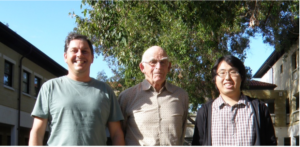
Hank Greenway with Hirokazu Takahashi (right, Nagoya University) and Tim Colmer (left, UWA) in 2010. Hank enjoyed long-standing international collaborations as well as supporting emerging researchers.
Hank’s research output was prodigious – he published 150 papers which attracted over 7,000 citations (Web of Science). The last paper was written when he was 93. This could lead to a conclusion that teaching was a secondary priority but nothing could be further from the truth. Always enthusiastic and energised about the beauty of how plants functioned, he inspired generations of undergraduate and postgraduate students with methodologies that were at the time considered rather ‘left field’. Readings were following by problem solving in student groups, with students themselves considered by Hank as central to the teaching as to the learning process. This problem-based approach to learning was almost revolutionary in the 1970s but is now coming into vogue as educationalists review the efficacy of the past structured teaching model of lectures, practicals and set-piece assignments. In the 1970s, he had students digging shallow ponds and planting cereals for later analysis of fermentative enzyme activities – not something they ever thought they had signed up to! This approach to learning was celebrated in the 2020 ASPS Teaching Award for Hank’s own account of his methods in teaching. Here is a link to an inspirational video by his colleagues: link. The feature Essay 3.1 – Using thought experiments to strengthen critical thinking at universities is laid out in fine detail in the society’s textbook ‘Plants in Action’: link.
Apart from his many domestic Honours, Masters and PhD students, Hank threw himself into research and teaching in SE Asia, running an ACIAR project with Tim Setter and subsequently Crawford Fund training courses in Thailand and Vietnam with his colleagues, including Mike Jackson, Tim Colmer and Tim Setter. Hank’s nurturing and patience with these students was always apparent — their expectations of protocols, instructions and professorial authority were always met with a very unexpected experience of alternative interpretations and coaxing towards explanations to explain the findings, with every conclusion only likely to survive until the next experiment. These field studies in Asia answered vital practical questions, especially the demonstration that complete submergence of rice after sudden rainfall led to carbohydrate starvation and thus, the importance of underwater sheath elongation for survival.
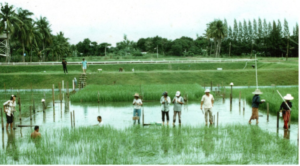
A research team led by Hank Greenway screening deep water rice in the field in Ayutthaya, Thailand (photo courtesy Tim Setter, 1985).
Hank leaves a towering legacy in science, with publications that will endure by their insights and the foundations they have laid for understanding abiotic stresses in plants. He also leaves a generation of proteges who continue his enthusiasm for discovery, and it would doubtless delight him to see the many new ways that his seminal discoveries and theoretical insights can be built upon with new technologies. And finally, we say farewell to a humanist whose love of his wife Tricia and family, the Indian Ocean and his large scientific community leaves us all much better for having known him.
Brian Atwell and many others
Please keep your ASPS membership up to date and encourage your colleagues and students to join ASPS.
Tweet to @asps_ozplants your news and upcoming events.
Plus… save the date for Thursday and Friday 25th and 26th November 2021 for our ASPS hybrid conference. Details soon.

